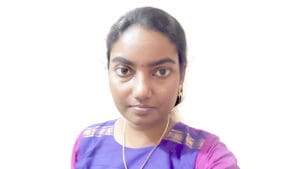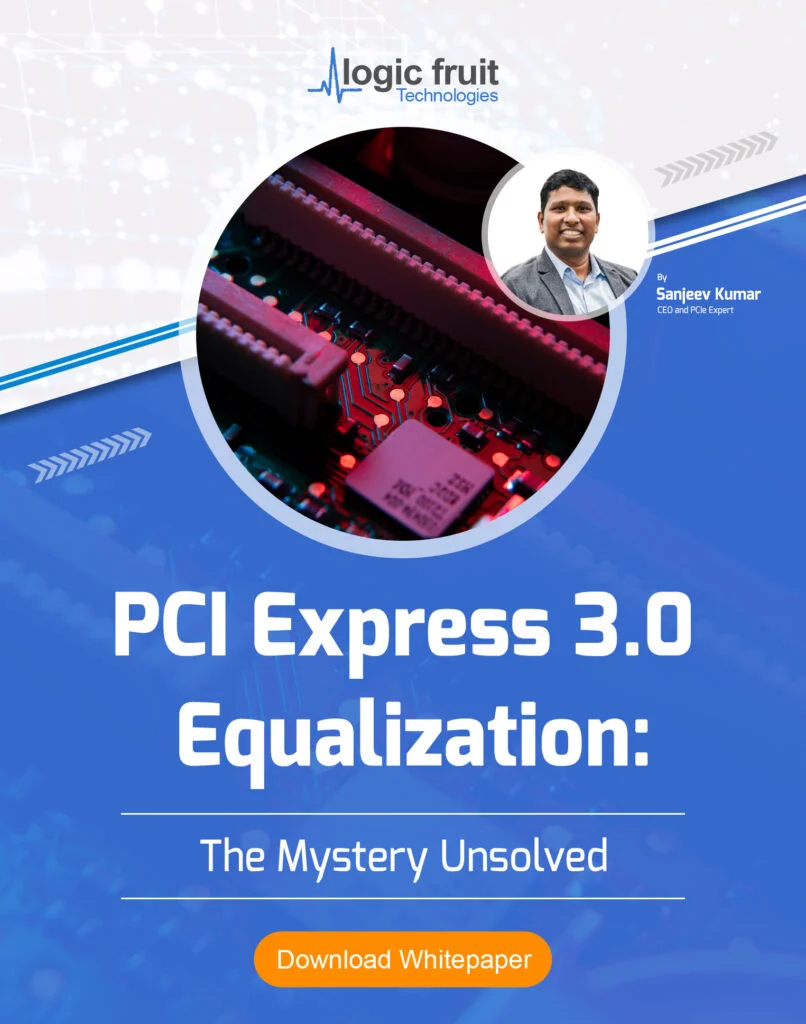Join Priyanka Singh Sengar, FPGA Module Lead, as she reflects on her career journey, overcoming challenges, and offers valuable advice for women entering the engineering field.
Women in Engineering with Priyanka Singh Sengar
FPGA Insights has conducted an exclusive interview with Priyanka Singh Sengar, FPGA Module Lead at Logic Fruit Technologies, to gain valuable insights into her experiences as a woman in engineering

What’s your Name, job title & area of research/work?
My name is Priyanka Singh Sengar. I am a Module Lead in the FPGA Department of Logic Fruit Technology. As a Module Lead, my primary area of research is PCIe Gen6, where I focus on developing and optimizing high-speed interconnect technologies. My work involves designing and validating cutting-edge solutions that enhance data transfer rates, improve latency, and ensure compatibility with next-generation computing systems. I am deeply involved in the technical leadership and management of projects that drive innovation in PCIe architectures, contributing to advancing high-performance computing and storage solutions.
What sparked your interest in engineering? Can you describe the moment you realized this was a field you’d like to pursue?
My interest in engineering was sparked by a combination of curiosity and determination to break barriers. Growing up, I was always fascinated by how things worked, from the gadgets around the house to the infrastructure in my community. However, I noticed early on that there weren’t many women in the field, which only fueled my desire to pursue engineering. I wanted to challenge the status and prove that gender should never be a limitation in any career.
The moment I realized engineering was the right field for me came during my high school. As I advanced in my studies and career, my passion for engineering only grew stronger. I’ve embraced the challenges and opportunities that come with being a woman in a traditionally male-dominated field, and I’m committed to contributing to the industry while also clearing the way for future generations of women engineers.
What are your experiences of being a female engineer?
Being a female engineer involves overcoming biases, building supportive networks, inspiring others, managing unique challenges, and bringing valuable diverse perspectives.
Can you tell me more about your career path so far?
I completed my schooling in Kanpur and was ranked among the top 10 students in Uttar Pradesh for my Intermediate exams. For this achievement, I received the Kanya Vidya Dhan award, a bicycle, and a laptop from the then Chief Minister of Uttar Pradesh, Mr. Akhilesh Yadav.
I pursued my B. Tech in Electronics and Communication Engineering at the National Institute of Technology, Patna, where I was also among the top 10 students in my batch. During my studies, I completed an internship after my third year at the Indian Institute of Technology, Guwahati. Additionally, I undertook an NPTEL course in my sixth semester titled “Embedded System Design with ARM,” for which I was honored as the golden medalist.
In my 7th semester, I applied for an off-campus internship at LFT for my 8th semester and was selected. I received both an internship offer and a full-time employment offer. Since December 2019, when I began as an intern, I have been working with LFT and am now serving as a Module Lead. I can confidently say that joining LFT has been one of the best decisions of my life.
What has been your most challenging experience as an engineer?
My most challenging experience as an engineer has been managing complex projects with tight deadlines and unforeseen issues. This has required balancing multiple priorities, and quickly resolving technical problems, all while ensuring the quality and success of the project.
What is the most exciting thing about your job?
The most exciting thing about my job is the opportunity to solve complex problems, innovate with cutting-edge technologies, and see my work make a real impact.
What kind of impact would bring you great satisfaction in your work?
1. Positive Change: Making a significant impact on society or the environment.
2. Career Growth: Achieving personal and professional milestones.
3. Inspiring Others: Encouraging the next generation of engineers.
4. Team Success: Contributing to a successful, collaborative project.
What do you think needs to be done to improve the statistics in terms of women’s participation in engineering?
1. Early Exposure: Introduce engineering concepts through hands-on activities and workshops in schools.
2. Scholarships and Grants: Provide financial support for women pursuing engineering degrees.
3. Flexible Work Policies: Offer flexible hours and remote work options to accommodate different needs.
4. Career Development: Offer career coaching and professional development tailored to women.
5. Parental Leave: Ensure supportive parental leave policies to retain women in the workforce.
6. Gender Equity Initiatives: Implement programs and policies aimed at reducing gender disparities in engineering fields.
What do you enjoy most and least about engineering?
Some of the most enjoyable things are innovating with new technologies, collaborating with diverse teams, and continuous learning. Some of the least pleasant things are unexpected problems, repetitive tasks, and regulatory hurdles.
Who has been your greatest support, coach, and mentor across [Industry], and why?
My parents and manager have been my greatest support, coach, and mentor. Their constant encouragement and belief in me have inspired me to work diligently and realize my ambitions.
What is it like to be a woman in engineering? Do you feel that your gender gives you a different perspective and experience from your male counterparts? Any advantages?
Being a woman in engineering involves navigating both unique challenges and distinct advantages. Gender diversity in engineering often means confronting stereotypes and biases, but it also brings valuable perspectives and insights. Women in the field may offer different problem-solving approaches, contribute to more inclusive design, and foster collaborative work environments. The experience can provide leadership opportunities, inspire others, and drive positive change in the industry. Overall, while the journey may include specific hurdles, women’s diverse viewpoints and strengths can significantly enhance engineering innovation and teamwork.
What advice do you have for women interested in engineering? What kinds of practical experience should they have? What technical skills should they pick up?
For women interested in engineering:
1. Stay Curious and Keep Learning: Embrace lifelong learning and stay updated with technology.
2. Gain Practical Experience: Seek internships, participate in research, and join competitions.
3. Build Technical Skills: Learn programming(verilog/vhdl), use industry software, and improve technical writing.
4. Network: Find mentors, join professional societies, and attend conferences.
5. Develop Soft Skills: Focus on problem-solving, communication, and teamwork.
6. Stay Confident and Resilient: Overcome self-doubt and persist through challenges.












